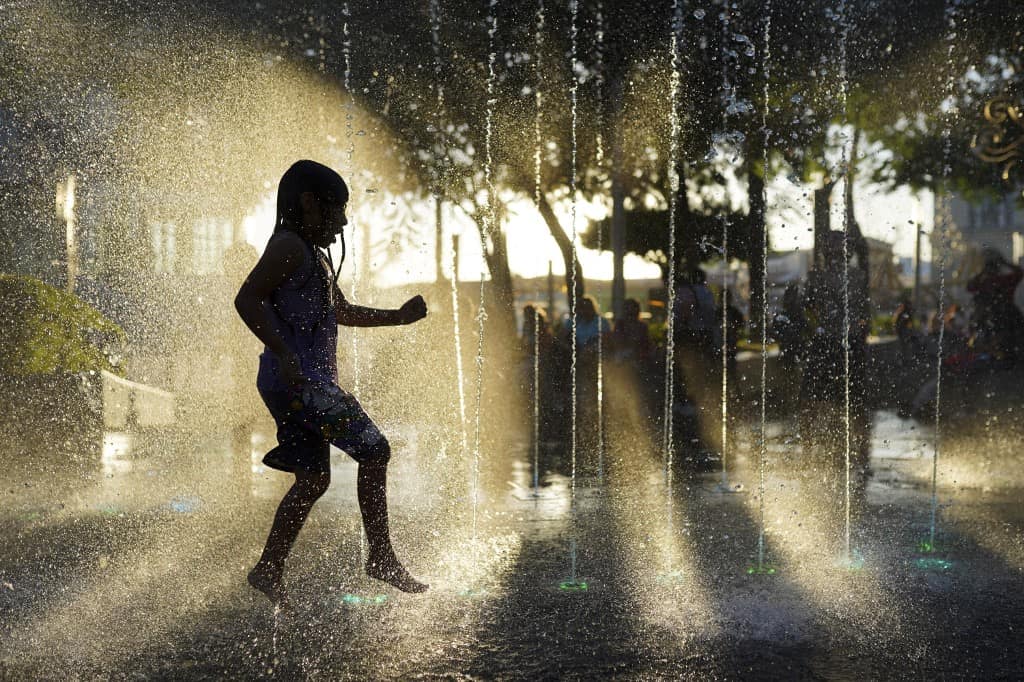Cristián González, 22, can now practice skateboarding in a San Salvador neighborhood that used to be gang territory, but he feels sad because his brother has been in prison for 20 months under an emergency regime.
Approved in March 2022 by the Salvadoran Congress at the request of President Nayib Bukele to combat the gangs that were ravaging the country, the emergency regime was extended on Wednesday until January 11, 2024.
Cristián says his brother Osvaldo, two years older than him, was one of the first detainees under this law that allows the deployment of soldiers on the streets and arrests without judicial order. More than 74,000 suspects have been detained and human rights groups say there are many innocent people among them.
“He was with his friends drinking (beers) and the police came and took him for (allegedly belonging to) illegal groups,” Cristián tells AFP sadly during a skateboard break in a sports venue in Zacamil, a neighborhood in northwest San Salvador that used to be disputed territory between the Barrio 18 and Mara Salvatrucha gangs.
“It has been quite painful for us,” adds the young man with a sweaty face, assuring that his brother “had no relationship with gangs.”
Bukele launched his “war” against gangs in response to an escalation of 87 murders in one weekend, attributed to the feared bands that maintained territorial control in much of the country. He also built a “mega-prison” to lock up thousands of gang members.
Osvaldo, who practiced acrobatic cycling, has been in prison since March 30, 2022 and his family has not been able to visit him, according to his brother. “We anxiously wish that he gets out soon,” says Cristián, who lives with his mother in Ciudad Futura, north of San Salvador.
Every month the mother takes toiletries to her son at La Esperanza prison, near the capital, but she cannot deliver them personally, so she leaves them with the guards, according to her son.
“When my mom goes to leave her package, she asks there how he is doing, and they tell her that he is still there,” without further explanation, Cristián assures, however he admits that under the state of emergency “today everything feels safer” in the country.
State Violence
The “war” has restored tranquility to the streets of the country and 90% of Salvadorans support Bukele’s administration, according to polls. Favored by his high popularity, Bukele took leave to run for reelection in February, although the opposition assures that his candidacy is “unconstitutional.” He left Claudia Rodríguez de Guevara as interim president, an unknown trusted collaborator for his compatriots.
Amnesty International denounced a “worrying” deterioration of human rights in the Central American country this week under the emergency regime. “State violence is gradually replacing gang violence,” said Ana Piquer, director of Amnesty for the Americas.
“People are afraid to report the serious violations committed under the regime, so it is very difficult to know the true extent,” said Ruth López, from the NGO Cristosal.
There is peace and security
The streets of the capital used to be dangerous, as gang members lurked, but now people have returned to public spaces, even at night. They also travel on buses without fear of being robbed.
Likewise, small food or clothing businesses have reopened throughout the city. Their owners had closed them overwhelmed by the gangs that extorted them.
Thanks to the new climate of security in the center, with the presence of soldiers and police, Reina Margarita Lemus walks with her husband and two children in Plaza Libertad. “Today we can walk freely and before we walked in fear, we didn’t go out,” said the 52-year-old cook.
In Gerardo Barrios square, flanked by the National Palace and a modern library donated by China, many people take selfies, something unthinkable before.
“Before the regime one was distrustful, one wasn’t taking out their phone or taking pictures anywhere, (now) it’s different,” says 50-year-old merchant Carmen Beltrán.
61-year-old merchant José Beltrán says that now “the atmosphere is good,” because “you feel peace and security,” while observing a music group playing marimba on a street adjacent to the Cathedral.






